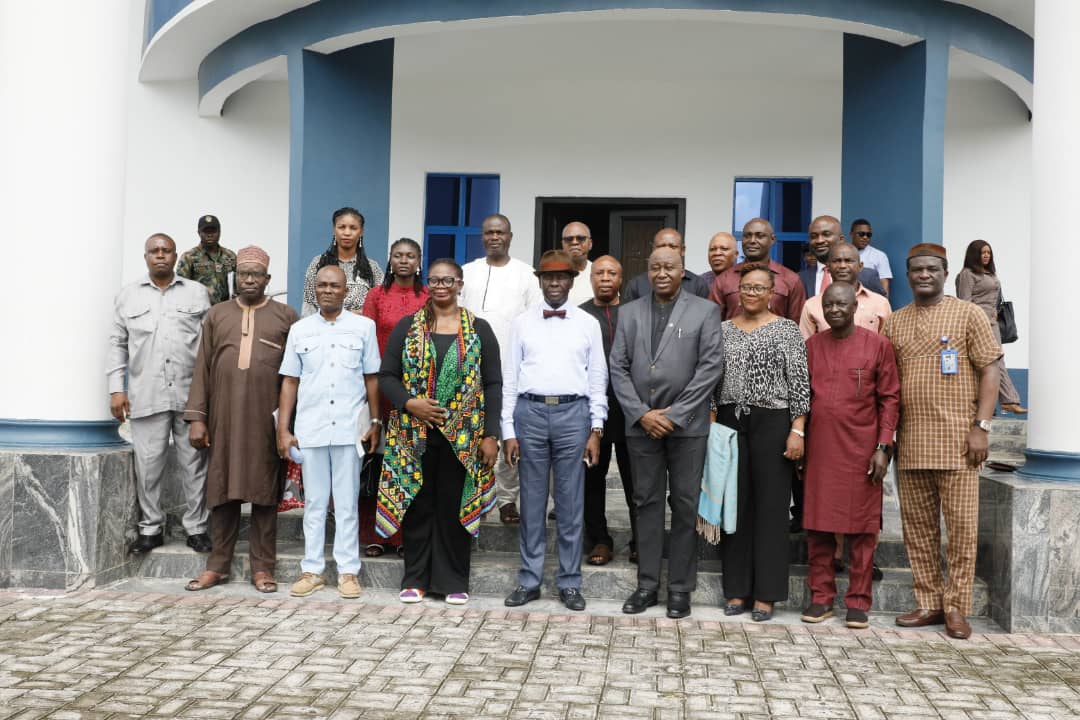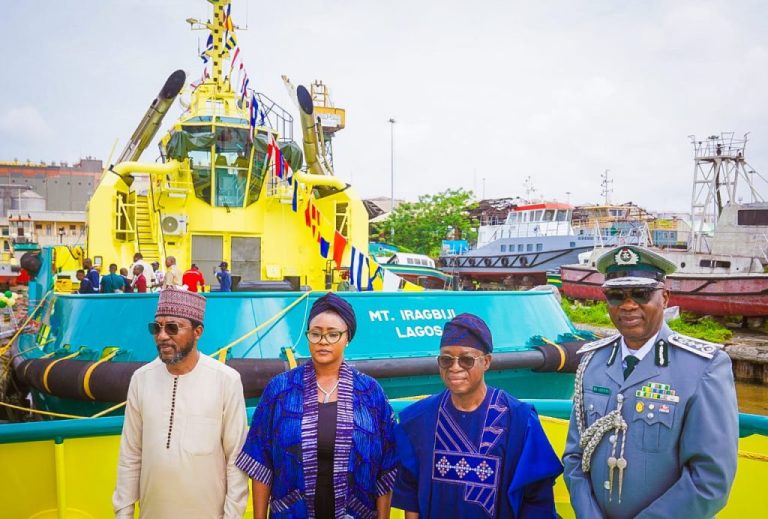Maritime security professionals in different papers delivered at the Blue Economy Week have called for harmonisation of the various maritime security assets and intelligence gathering infrastructure to enable the nation achieve its maritime security task.
The week-long programme organized recently by the Maritime Academy of Nigeria, Oron Akwa Ibom, had papers delivered by several resource persons with expertise in the maritime industry.
In his paper titled ‘Maritime Domain Awareness: A Case Study of Nigeria’s Territorial Waters,’ Rear Admiral Austin Oyagha (Rtd) decried the continued criminal activities encouraged by ungoverned spaces in spite of efforts dedicated to maritime security.

He called for greater synergy among the Nigerian Navy (NN), the Nigerian Maritime Administration and Safety Agency (NIMASA) and the Nigerian Port Authority (NPA) for a harmonised management and control of critical security infrastructure including the Nigerian Navy Falcon Eye, NPA’s C31, and NIMASA’s C4i, for greater efficiency.
“Nigeria depends significantly on her maritime domain because the area generates over 80 per cent of the funds for the country’s national budget. An effective awareness and monitoring of Nigeria’s maritime domain, is thus, necessary to create a positive atmosphere for economic activities,” he said.
Oyagha explained that the establishment of Regional Maritime Awareness Capability (RMAC) Centre in Lagos in 2007 opened the door to departmentalisation of maritime security and the gaps that inevitably followed.
His words: “The NN and APS collaboration also led to the establishment of other RMAC centres and sites at Forward Operating Bases in Bonny, Ibaka and Badagry. The Office of the National Security Adviser (ONSA), Defence Headquarters and NIMASA, monitor the maritime domain through RMAC display units installed at their operations rooms.”
According to him, “This duplication of MDA efforts and the fact that some agencies and International Oil Companies have acquired various forms of MDA capability depicts absence of synergy and raises concern for the coordination of MDA among maritime stakeholders.”
In his paper titled ‘Maritime Security Challenges in the Gulf of Guinea’ a former Chief of Naval Staff, Vice Admiral Joseph Ezeoba, spoke on the impacts of various bilateral and multilateral collaborations aimed at achieving improved maritime security in Nigeria and the sub region.
“The current security challenges in the Gulf of Guinea (GoG) and its effects on the economy of the region reinforces the need to adopt global maritime partnerships as a strategic option of choice to deal with extant maritime threats which are transactional in nature and also address related capacity inadequacies to ensure a secure and safe GoG maritime domain,” he said.
While stating that the recent expansion of Nigeria’s continental shelf from 200 to 350 nautical miles was a boost to Nigeria’s maritime status, but with additional security responsibilities, Ezeoba noted that collaboration and harmonisation would ensure greater efficiency, even as defence budgets are increasing due to emerging global security challenges.
Speaking on ‘The Blue Economy: Imperatives for Nigeria,’ Rear Admiral Francis Dan Akpan (Rtd) provided a broad background information on the concept of blue economy, and what it aimed to achieve.
“The idea of the Blue Economy was conceived at the RIO+20 United Nations Conference on Sustainable Development held in Rio de Janeiro on June 2012. This conference addressed Two Key Themes: the further development and refinement of the Institutional Framework for Sustainable Development and the advancement of the concept of the Green Economy.
“The outcome was the affirmation that Poverty Eradication was its key challenge, thus there was the focus on the green economy as a tool to achieve both themes: poverty eradication and sustainable development. The Oceans, Seas and Rivers, the maritime domain cover a large proportion of the planet Earth’s Surface. It is made up of more than 95% of the biosphere. They provide much of the World’s Population with food, livelihoods, and it is a significant means of transportation for global trade, constituting more than 90%.”
Akpan spoke on the importance and need to keep the ocean healthy for its resources to be used sustainably for the benefit of people development.
He said, “The opportunities inherent in Nigeria’s Blue Economy Regime remains untapped, as sustainable exploration of the oceans, numerous channels and estuaries, lakes, rivers, creeks among others are undermined by inadequate knowledge, technological capacity and limited investment. Thus, our efforts have remained pedestrian, more elusive and remaining at the subsistence level of our ancestors.
“The opportunities in Tourism, Blue Power Generation remain under-explored and we are not involved in any deep sea-bed exploration due mainly to the lack of insufficient human resources and technological capabilities. Thus, the theme of the 2024 Blue Economy Week in Maritime Academy Oron is germane and appropriate.”
He also spoke on the need for a safe and secure maritime domain as critical for international ocean sea borne trade, job and wealth creation within the blue economy.
The resources persons at different times highlighted the importance of local capacity development, a reason for the knowledge –sharing sessions with the cadets and the Academy’s community.
In his remark, the Rector of the Academy, Commodore Duja Effedua (Rtd), urged the cadets to demonstrate high level of seriousness in acquainting themselves with their academics, and industrial rudiments of the marine and blue economy, as it holds the key to immediate future of the nation’s seafarers and maritime economy.
He said that the week-long Blue Economy Week seminar was designed to provide cadets with the necessary awareness of the blue economy concept and to prepare them for life outside the classroom.
“Nigeria is developing its blue economy and as cadets and seafarers, it holds the future for most of you. We have taken you through various levels of academic training but at the end of the day, whatever your specialisation, you’ll end up in the marine and blue economy, so it is important you have the essential knowledge.”


































































